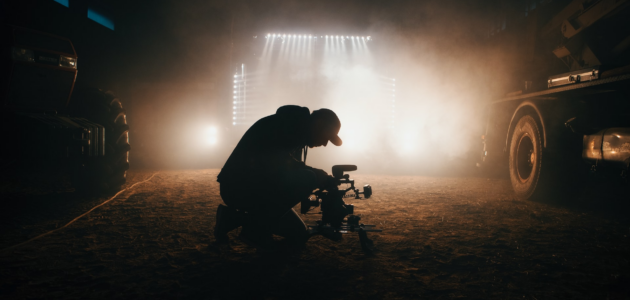
How to approach a one-day role on set
If you’re auditioning for film and TV, it’s more than likely that your first job or two will likely be a one-dayer, a day-player or also known as a 50-worder. This is a part that has 50 words in the script or less and as the name suggests, usually shoots in one day. While this sounds easy, it can actually be surprisingly tricky. In a way it is the acting equivalent of being a substitute teacher, you’re expected to drop into this already very established environment and immediately get to work, fitting in with a working environment which is completely foreign to you. Here are some things I do when approaching a one-day role:
Be professional
First things first, be punctual, be polite and be ready to work. This set has been working efficiently for a while and it is really important that you turn up ready to fit into that environment. Even though you only have a small part, you don’t want to be the rusty panel that sinks the ship. My personal idea of hell is having a tiny role in a major production and screwing it up, forcing everyone to wait for me while I figure out my nonsense.
Ideally, the production crew feels like you have always been there and you fit in so perfectly that you just become part of the furniture. Also, stay out of any onset politics. Particularly towards the end of a production, friction can develop between departments or individuals on set, keep your nose out of that (even if you love the drama) and stay impartial. Again, you are there to work, to do a job. Not to gossip with the gaffers.
Know your lines
This is doubly or triply important if you only have a few lines. Make sure you really, really, really know your lines. If you have no idea how to do that, check out our article on how to learn lines. I have been caught out on this one before, where I had one line in a TV show. Turned up on set, like a big-time cool actor guy. Got on set and managed to say every possible variation on the line, without saying the line itself. That particular scene ended up being cut from the episode. Insert facepalm emoji here.
This really cannot be understated. Learn those lines no matter how few of them you have.
Read the room
Every set is different and has a different vibe. As soon as you possibly can, get down to set and try to get a vibe on who is who and what the style and feeling is on set. Is everyone very serious and avoiding eye contact with each other? Or cracking jokes and making fun? You want to slip into that vibe as much as you can.
Be cautious about stepping straight in and cracking out your tight five for the camera department. On the right set this could go down well, or you could alienate yourself very quickly. I always like to research the director and producers previous work, just in case you are stuck in a lift with them at least you will have something to talk about rather than just awkwardly staring at the wall. Whereas you want to stand out with your work, you really want to fit in with your behaviour.
Help out where you can
This can be tricky, but my suggestion here is to do what you can to make other peoples lives on set easier, while not telling anyone how to do their job. Heres an example, I was on a cop show as some random junior officer bringing up some files for a detective. The room they were shooting in was tiny, with glass walls and reflections everywhere. The director couldn’t find a way to shoot me arriving without getting reflection problems. The lead actor had the idea of seeing me coming, as part of the previous scene and motioning to me to come to him in a different direction. This enabled them to get my arrival over his shoulder then do a second set up in the office shooting out the door to get my line.
Essentially he solved the blocking problems for the director with a gentle helpful suggestion. I’ve always thought about that as the best way to offer an idea to solve a problematic moment. However do be cautious about telling anyone how to do their job, helping out has to come from a place of wanting to work together to solve a problem, not about showing how clever you might be.
Smash it
Most importantly, smash it. Get in there and act the absolute house down. As much as you want to easily fit in with your on-set behaviour. If you can make the production team take notice of how truthfully, authentically and personally you delivered your one line they might keep you in mind for bigger things in the future. In so many ways these smaller roles are auditions in themselves for bigger and better things down the track. So take it seriously, do the work and take your opportunities.
Conclusion
So there you have it, a couple of tips on how to approach the one-day role. It’s all about mixing it up between fitting in and standing out. Immerse yourself in the work, use those critical thinking muscles to solve problems as they arise and keep it friendly and professional. Hopefully this has given you a bit of a guide on what to do next time you are on set and good luck!

Leave a Reply